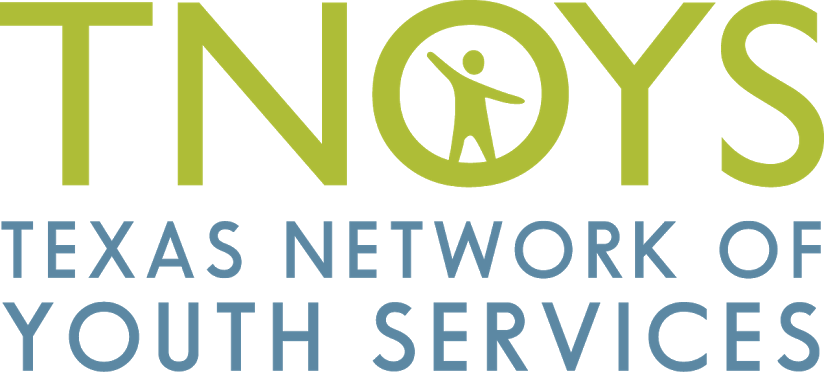
Daniel and Samantha from Conroe, Texas, shared their experiences with housing instability as young people during an event hosted by TNOYS on Sept. 20.
Yesterday, TNOYS released a process evaluation report sharing findings and recommendations from our work on Youth Count Texas!, the first-ever statewide count of youth experiencing homelessness in our state. One of the key findings of the report is that young people facing housing instability have different needs and behaviors than their adult counterparts, requiring unique methods for surveying and supporting them. So, in conjunction with the release of our report, we invited several formerly homeless youth to speak at a public event, to help the community understand their experiences and the kind of support they need.
Four young people from Austin and Conroe sat on the panel, moderated by TNOYS Board Chair Kellie Stallings. They all shared amazing stories of success and resiliency, and a well-founded pride in the challenges they have overcome. Darrion of Austin pointed to his experience with homelessness from a very young age as giving him strength and skills: “I’m a survivor. I know what it is to get through the storm.” Gus of Austin has found that his experience has given him the tools to help others in similar situations, saying, “I was able to find my way out. I found myself working in a lot of places where I helped kids going through the same thing.”
Panelists agreed that this kind of understanding of young people’s situations with homelessness is critical to fixing the problem. As Darrion said, “Youth-adult partnership is key. Let’s figure this out together.” Samantha of Conroe concurred, saying that one of the best ways for adults to help is to “get information from young people about what they’re struggling with so you can help them.”
One challenge encountered during Youth Count Texas! and other similar surveys is how difficult it can be to find homeless youth because they tend to avoid identifying as homeless and often couch-surf or sleep at motels to avoid sleeping outside or in shelters. All of the panelists confirmed this, sharing that they frequently stayed with friends or at motels. And while they appreciated the temporary shelter, they pointed to this phenomenon as enabling their lifestyle. Darrion recommended that people in the community should offer more long-term solutions: “Break the cycle that makes it OK to couch-surf. Help search for ways to end it, don’t keep it going,” he said.
Daniel of Conroe also stressed the need for communities to provide training and education to young people in need, so they can better provide for themselves. He pointed to trade schools and transitional living programs as being key to helping him overcome poverty and homelessness. Samantha also benefited from a transitional living program and suggested that this resource should be proactively offered to youth transitioning out of foster care, who are at heightened risk for suffering housing instability. “If youth are aging out of the foster care system, get them set up right away in a transitional living program,” she said. “Create a stepping stone.”
The participants also noted that youth experiencing homelessness are often facing a variety of other challenges that go along with it, from mental health issues to abuse to exposure to drugs. It’s important for those attempting to help homeless youth to understand the full picture of their situation. “Keep in mind where the homelessness is starting, what’s going on in those homes,” said Gus. “Understand everything that goes along with being homeless so you can tackle all of those different things.”
All of the participants expressed hope that the community does have the power to help youth experiencing homelessness, they just need to put more funding and effort behind the cause. “Youth homelessness is something the community can help. Just being there and saying you’re not leaving is monumental,” said Samantha. Daniel agreed saying, “Get involved any way you can and you can make a difference.” Darrion also echoed the power of community saying, “It wasn’t one person who helped me. There was one person who opened a door to a program and a community of people who cared.”
Youth Count Texas! is an amazing first step toward better understanding the struggles of young people like these four panelists – and finding the tools to help them. The Texas Department of Housing and Community Affairs will be releasing the final results of Youth Count Texas! later this year and together with the findings from TNOYS’ process evaluation report and the personal stories of young people facing homelessness, we will be armed with an incredible amount of information and insight to help Texas communities tackle this challenge.
Read the Austin Chronicle’s coverage of the event here.
Read an opinion piece by TNOYS’ executive director about the release of the Youth Count Texas! process evaluation report here.

Read about the report in the San Antonio Express News and am currently working at the Thrive program at Haven for Hope in San Antonio. Looking forward to hearing from you, Randall S. Braddock